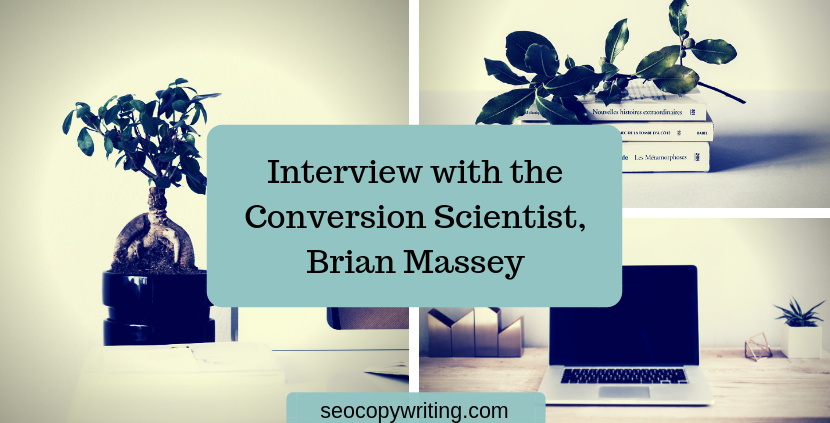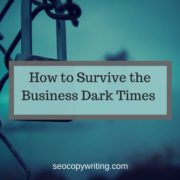Interview with the Conversion Scientist, Brian Massey
Brian Massey is the Conversion Scientist at Conversion Sciences and he has the lab coat to prove it. His rare combination of interests, experience and neuroses was developed over almost 20 years as a computer programmer, entrepreneur, corporate marketer, national speaker and writer.
Conversion Sciences was founded to fill the Web with helpful, engaging and entertaining online Web sites that convert visitors into leads and sales. Brian has helped dozens of businesses transform their sites through a steady diet of visitor profiling, purposeful content, analytics and testing.
So how did it come to pass that you became the “Conversion Scientist?”
Well, I knew that few business owners were waking up in the middle of the night in cold sweats screaming “I need an online marketing strategist,” which is what I technically do. Even fewer are screaming for a “Conversion Scientist.” However, the next best thing to having someone say, “Oh, I need someone like you,” is having them say, “You’re a what?” And I can explain conversion in a sentence.
The Sciences theme plays to the fact that my practice is very data-driven: “I get no pleasure if we don’t measure.”
In your opinion, where is the art of conversion copywriting going?
I think it is going cross-channel. To be a good copywriter, you must be able to be persuasive on a landing page, home page, product page, etc. To be a good conversion copywriter, you have to be able to write a video script, summarize the major points for the landing page, create the series of blog posts that tease the video, compose the white paper that the video pitches, integrate the search key words in all of this and then cram it all into 140 characters… all in a week.
The only way to really know what to write without doing a lot of research is to watch your results. You have to know which topics get clicked. You have to know which headlines get sales. You have to know which search terms like which offers.
A good copywriter watches the numbers.
Do you have any words of wisdom for SEO copywriters about conversion optimization?
Get comfortable reading Adwords analytics and site analytics. Figure out what works for humans (conversions) as well as the search engine (visits). Then practice, and when you get good, charge a whole lot of money.
Besides actual text, what are other ways to induce conversions?
Use big buttons that call people to action. Draw boxes around important points you want to make. Strike stock photography from the site. Add a video. Shorten your signup form. Add trust symbols and logos to your pages and shopping carts. Most importantly, know the person who typed in the page URL or search term, and why they did so at this point in their life. Then make them glad they did.
Where do SEO copywriters “fit” in the overall conversion equation?
Copywriters have more ability to affect conversion rates than any other contributor to the online marketing equation. Richer images can be drawn with words than with Photoshop. Headlines can be more emotional than photographs. Designers assume they have 8 seconds to get someone’s attention. Good writers will capture visitors for minutes. A picture is worth a thousand words, but it’s still the words that count.
Why does it sound like I’m so full of shit? Because writers don’t know how to defend themselves. Most marketing firms believe that, because they own Word, they are qualified to edit a writers’ work. As a result, writers suffer from PRPSD: Post Red Pen Stress Disorder. By the time a corporate committee has finished “reviewing” their work, the storytelling, metaphor and color have all been bled out of the best copy. Copywriters begin to just do what the client asks rather than fight the battle. Copywriter heal thyself. Every situation is different, but I would recommend the following:
Be the most expensive in your industry/area /subject matter. This gives you the freedom to rewrite and do more research if necessary.
- Set expectations up front: “I won’t let just anyone edit my copy.”
- Don’t EVER assume that the client knows their customers, especially on the Web.
- Get good at doing personas of Web visitors. These fake people will rise to your defense when your copy is attacked.
- Threaten to fire clients frequently.
- Gather data from every client you don’t fire to demonstrate your prowess.
- Call yourself a Copy Scientist, Persuasion Editor, or Conversion Linguist… and then kick ass.







Leave a Reply
Want to join the discussion?Feel free to contribute!